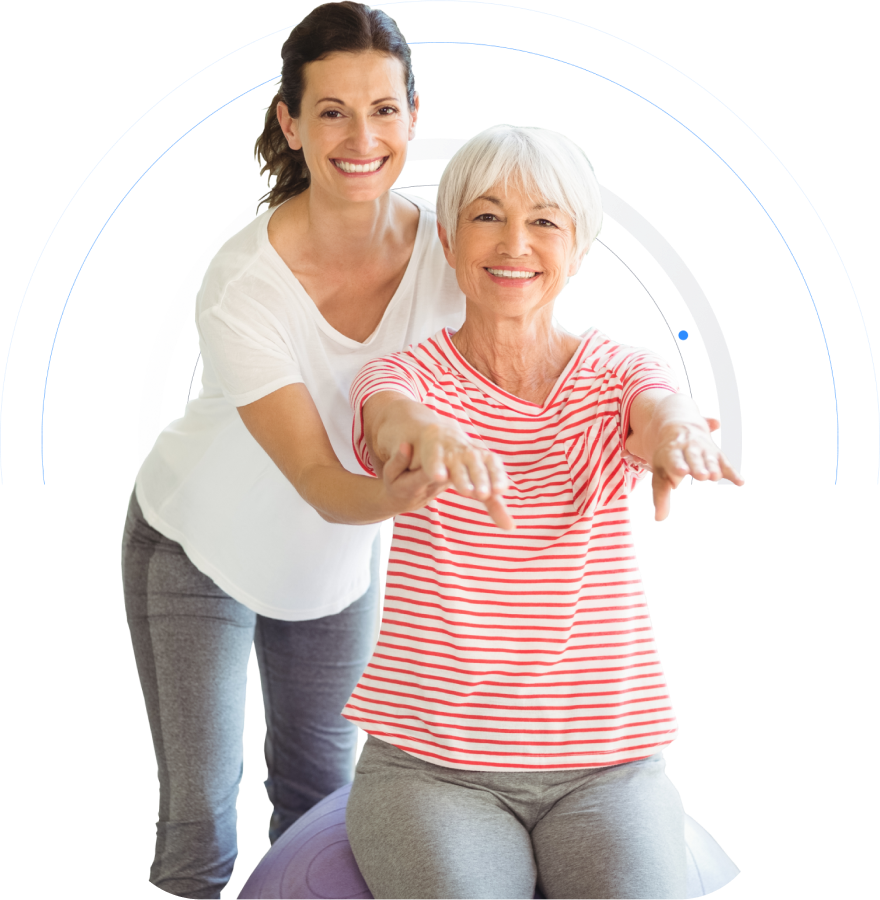This website uses cookies so that we can provide you with the best user experience possible. Cookie information is stored in your browser and performs functions such as recognising you when you return to our website and helping our team to understand which sections of the website you find most interesting and useful.
Home Care In Queensland, AB

They say that your golden years are the best years of your life. For most older Canadians, that's how it should be - a time to relax, reflect, and live life in a familiar place. After all, senior citizens in our country have worked tirelessly to build a better economy, serve their communities, and raise families.
However, as seniors grow older, completing daily tasks like showering and enjoying activities such as visiting the historic Fort Lytton National Park gets harder without someone by their side. However, as seniors grow older, sometimes they cannot live independently without someone by their side to provide care. Unfortunately, many older Canadians aren't able to rely on their adult children for help. The reality in today's world is that family members do not have the skills or time to dedicate to caring for their parents. That's where Always Best Care Senior Services comes in.
Our in-home care services are for people who prefer to stay at home as they grow older but need ongoing care that family or friends cannot provide. More and more older adults prefer to live far away from long-term, institutionalized facilities and closer to the place where they feel most comfortable - their home. Home care in Queensland, AB is a safe, effective way to give your loved ones the care they need when they need it the most.

 Home Care Services
Home Care Services
- Home Care in Queensland, AB
- The Always Best Care Difference
- Types of In-home Care in Queensland, AB
- Benefits of Home Care in Queensland, AB
- Aging in Place: The Preferred Choice for Most Seniors
- Affordable Care Plans
- Compassionate Care. Trusted Caregivers
- Assisted Living Referral Services
- Taking the First Step with Always Best Care
 Service Areas
Service Areas
The Always Best Care Difference
Since 1996, Always Best Care has provided non-medical in-home care for seniors to help them maintain a healthy lifestyle as they get older. We are proud to have helped more than 25,000 seniors maintain higher levels of dignity and respect. We focus on providing seniors with the highest level of in-home care available so that they may live happily and independently.
Unlike some senior care companies, we genuinely want to be included in our clients' lives. We believe that personalized care is always the better option over a "one size fits all" approach. To make sure our senior clients receive the best care possible, we pair them with compassionate caregivers who understand their unique needs. That way, they may provide care accordingly without compromising their wellbeing.
The Always Best Care difference lies in life's little moments - where compassionate care and trustworthy experience come together to help seniors live a fruitful, healthy life. Whether you are an aging adult that can't quite keep up with life's daily tasks or the child of a senior who needs regular in-home services, Always Best Care is here to help.
“I highly recommend choosing this company. Excellent care toward their clients and willing to answer”
“Very friendly and reliable people! Easy to work with and provide exceptional care. Would recommend”
“ABC provides very caring, reliable and qualified support. I would highly recommend them. With their”
“Very happy with the exceptional care.”
“ABC provided great care and we would highly recommend and will use again.”
“Friendly staff and reliable service, would highly recommend!”
“Great people! Calgary needed this service and now it’s here”
“So professional and caring! I am very happy with the care provided to my loved”
“Always Best Care was amazing all around. The care our loved one received was fantastic.”
“Very trustworthy owners with huge experience in the industry. Highly recommend”
“I highly recommend choosing this company. Excellent care toward their clients and willing to answer any questions. Reliable, friendly and supportive!”
“Very friendly and reliable people! Easy to work with and provide exceptional care. Would recommend to anyone!”
“ABC provides very caring, reliable and qualified support. I would highly recommend them. With their excellent staff, they make the process for getting care as easy and worry free as possible.”
“Very happy with the exceptional care.”
“ABC provided great care and we would highly recommend and will use again.”
“Friendly staff and reliable service, would highly recommend!”
“Great people! Calgary needed this service and now it’s here”
“So professional and caring! I am very happy with the care provided to my loved one. Would highly recommend them.”
“Always Best Care was amazing all around. The care our loved one received was fantastic. They were reliable, considerate and kind. I highly recommend their service for your family member!”
“Very trustworthy owners with huge experience in the industry. Highly recommend”
What is Non-Medical Senior Care in Queensland, AB?

Home is where the heart is. While that saying can sound a tad cliche, it is especially true for many seniors living in America. When given a choice, older adults most often prefer to grow older at home. An AARP study found that three out of four adults over the age of 50 want to stay in their homes and communities as they age.

When you begin to think about why, it makes sense. Home offers a sense of security, comfort, and familiarity.

The truth is, as we age, we begin to rely on others for help. When a family is too busy or lives too far away to fulfill this role, in-home senior care is often the best solution. Home care services allow seniors to enjoy personal independence while also receiving trustworthy assistance from a trained caregiver.

At Always Best Care, we offer a comprehensive range of home care services to help seniors stay healthy while they get the help they need to remain independent. As your senior loved one gets older, giving them the gift of senior care is one of the best ways to show your love, even if you live far away.

Types of Elderly Care in Queensland, AB
To give our senior clients the best care possible, we offer a full spectrum of in-home care services:

Personal Care Services
If your senior loved one has specific care needs, our personal care services are a great choice to consider. Personal care includes the standard caregiving duties associated with companion care and includes help with tasks such as dressing and grooming. Personal care can also help individuals with chronic conditions like diabetes.
Common personal care services include assistance with:
- Eating
- Mobility Issues
- Incontinence
- Bathing
- Dressing
- Grooming
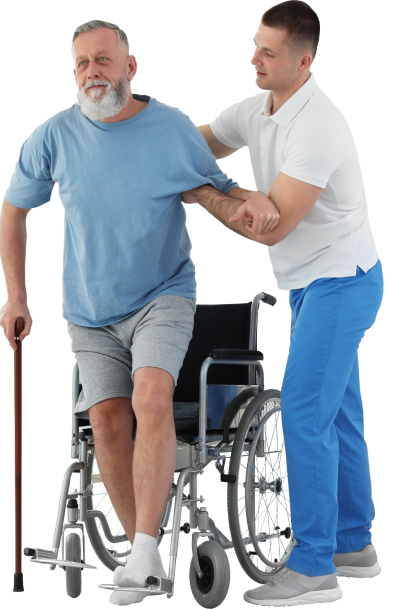

Home Helper Services
Sometimes, seniors need helpful reminders to maintain a high quality of life at home. If you or your senior has trouble with everyday tasks like cooking, our home helper services will be very beneficial.
Common home helper care services include assistance with:
- Medication Reminders
- Meal Preparation
- Pet Care
- Prescription Refills
- Morning Wake-Up
- Walking
- Reading
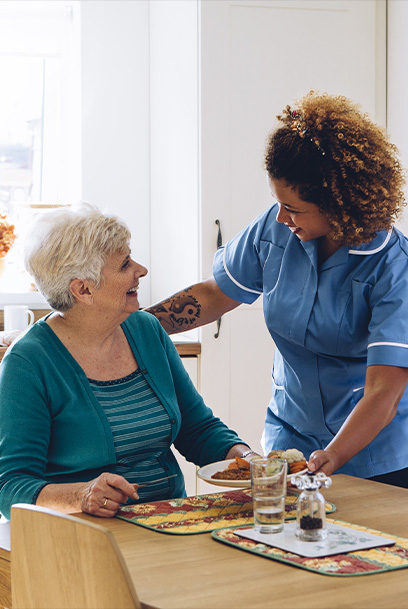

Companionship Services
Using this kind of care is a fantastic way to make life easier for you or your senior loved one. At Always Best Care, our talented caregivers often fill the role of a companion for seniors. That way, older adults can enjoy their favorite activities and hobbies while also receiving the care they need daily or weekly. That way, older adults can enjoy their favorite local activities, such as visiting Great Sandy National Park with friends while also receiving the care they need daily or weekly.
Common companionship services include:
- Grocery Shopping
- Transportation to Appointments
- Nutritional Assistance
- Conversation
- Planning Outings
- Completing Errands
- Transportation to Community
- Events and Social Outings


Respite Care Services
According to AARP, more than 53 million adults living in the U.S. provide care to someone over 50 years old. Unfortunately, these caregivers experience stress, exhaustion, and even depression. Our respite care services help family caregivers address urgent obligations, spend time with their children, and enjoy other activities. Perhaps more importantly, respite care gives family members time to recharge and regroup. Taking personal time to de-stress helps reduce the risks of caregiver burnout. So, if you've always wanted to eat at the local Little Truffle or visit Old Government House, don't feel bad. Doing so is great for both you and your loved one.
When it comes to non-medical home care, our goal is to become a valuable part of your senior's daily routine. That way, we may help give them the highest quality of life possible. We know that staying at home is important for your loved one, and we are here to help make sure that is possible.
If you have been on the fence about non-medical home care, there has never been a better time than now to give your senior the care, assistance, and companionship they deserve.
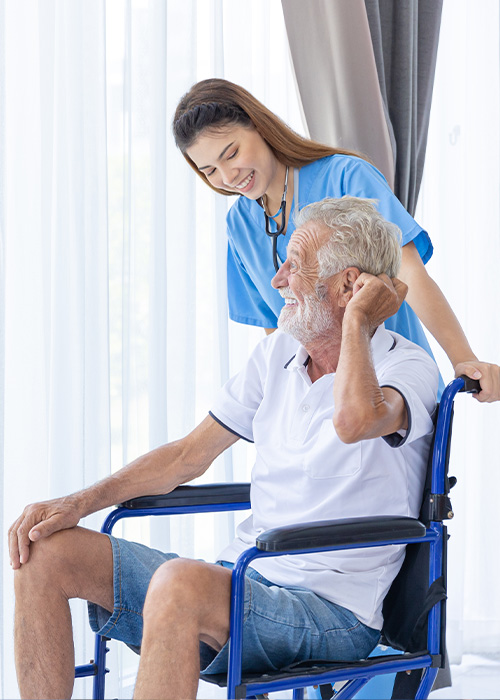
Benefits of Home Care in Queensland, AB
Always Best Care in-home services are for older adults who prefer to stay at home but need ongoing care that friends and family cannot provide. In-home care is a safe, effective way for seniors to age gracefully in a familiar place and live independent, non-institutionalized lives. The benefits of non-medical home care are numerous. Here are just a few reasons to consider senior care services from Always Best Care:
Always Best Care offers a full array of care options for patients at all levels of health. With our trusted elderly care services, your loved one will receive the level of care necessary for them to enjoy the highest possible quality of life.
Request More Information
Aging in Place: The Preferred Choice for Most Seniors
While it's true that some seniors have complicated medical needs that prevent them from staying at home, aging in place is often the best arrangement for seniors and their families. With a trusted caregiver, seniors have the opportunity to live with a sense of dignity and do so as they see fit - something that is unavailable to many older people today.
In-home care makes it possible for millions of seniors to age in place every year. Rather than moving to a strange nursing home, seniors have the chance to stay at home where they feel the happiest and most comfortable.
Here are just a few of the reasons why older men and women prefer to age at home:
How much does a senior's home truly mean to them?
Studies on aging have found that more than half of seniors say their home's emotional value means more than how much their home is worth in monetary value. It stands to reason, then, that a senior's home is where they want to grow old.
With the help of elderly care in Queensland, AB, seniors don't have to age in a sterilized care facility. Instead, they can age gracefully in the place they want to be most: their home. In contrast, seniors who move to a long-term care facility must adapt to new environments, new people, and new systems that the facility implements. At this stage in life, this kind of drastic change can be more harmful than helpful.
Institutional care facilities like nursing homes often put large groups of people together to live in one location. On any given day, dozens of staff members and caregivers run in and out of these facilities. Being around so many new people in a relatively small living environment can be dangerous for a seniors' health and wellbeing. When you consider that thousands of seniors passed away in nursing homes during the COVID-19 pandemic, opting for in-home care is often a safer, healthier choice for seniors.
Aging in place has been shown to improve seniors' quality of life, which helps boost physical health and also helps insulate them from viral and bacterial risks found in elderly living facilities.
For many seniors, the ability to live independently with assistance from a caregiver is a priceless option. With in-home care, seniors experience a higher level of independence and freedom - much more so than in other settings like a nursing home. When a senior has the chance to age in place, they get to live life on their own terms, inside the house that they helped make into a home. More independence means more control over their personal lives, too, which leads to increased levels of fulfillment, happiness, and personal gratification. Over time, these positive feelings can manifest into a healthier, longer life.
More independence, a healthier life, and increased comfort are only a few benefits of aging in place. You have to take into consideration the role of cost and convenience. Simply put, it's usually easier and more affordable to help seniors age in place than it is to move them into an institutional care facility. According to the CBC, aging in place can be more affordable than living in a retirement home, which can cost thousands of dollars a month, with no extra care included.
In-home care services from Always Best Care, for instance, are often less expensive than long-term solutions, which can cost upwards of six figures per year. To make matters worse, many residential care facilities are reluctant to accept long-term care insurance and other types of payment assistance.
With ABC's home care services, seniors and their families have a greater level of control over their care plans. In-home care gives seniors the chance to form a bond with a trusted caregiver and also receive unmatched care that is catered to their needs. In long-term care facilities, seniors and their loved ones have much less control over their care plan and have less of a say in who provides their care.
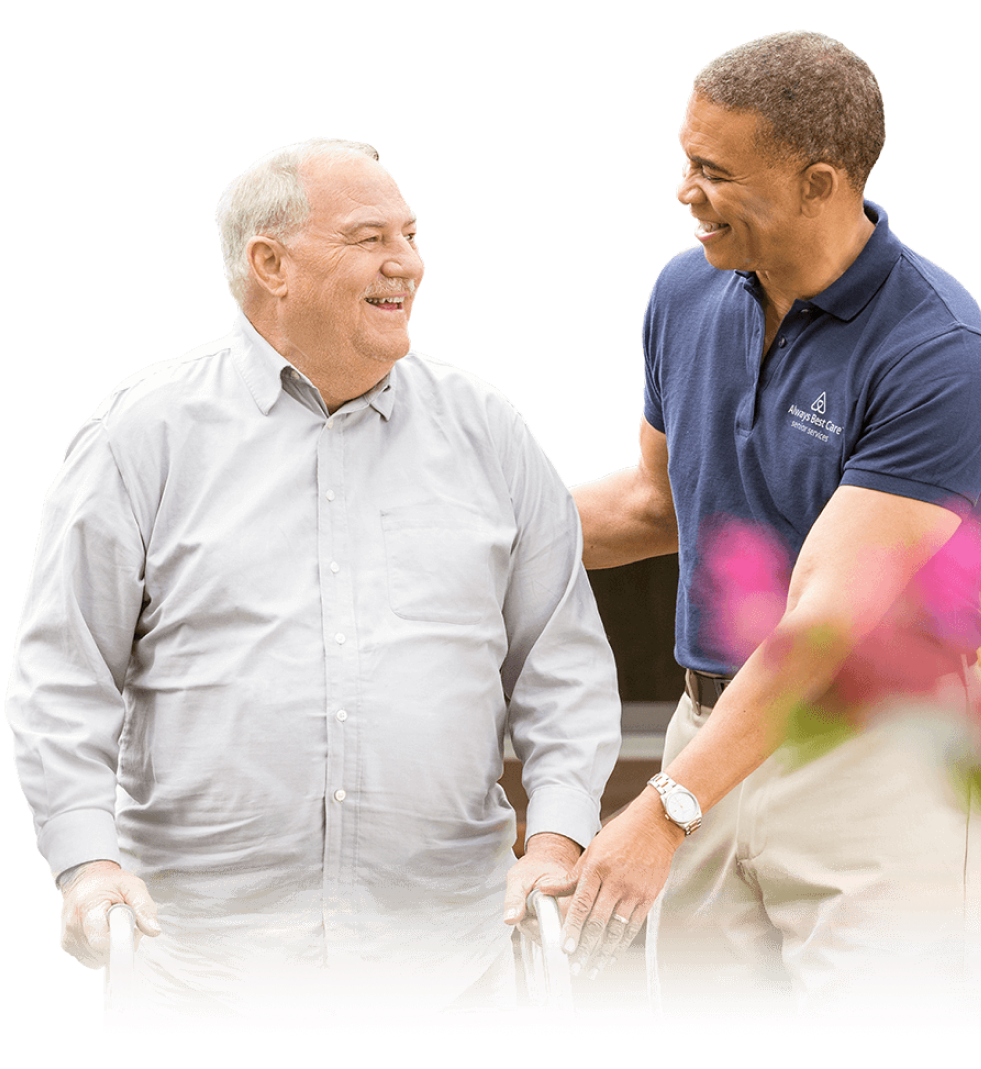
Affordable Care
In-home care is a valuable resource that empowers seniors to age in place on their own terms. However, a big concern for many families and their loved ones is how much in-home care costs. If you're worried that in-home care is too expensive, you may be pleasantly surprised to learn that it is one of the most affordable senior care arrangements available.
Typically, hiring an Always Best Care in-home caregiver for a few hours a week is more affordable than sending your loved one to a long-term care facility. This is true even for seniors with more complex care needs.
At Always Best Care, we will work closely with you and your family to develop a Care Plan that not only meets your care needs, but your budget requirements, too. Once we discover the level of care that you or your senior need, we develop an in-home care plan that you can afford.
In addition to our flexible care options, families should also consider the following resources to help offset potential home care costs:
During your Care Plan consultation with Always Best Care, your Care Coordinator will speak with you about in-home care costs and what options there may be to help meet your budget needs.

Compassionate Care. Trusted Caregivers.
When you or your senior loved one needs assistance managing daily tasks at home, finding a qualified caregiver can be challenging. It takes a special kind of person to provide reliable care for your senior loved one. However, a caregiver's role involves more than meal preparation and medication reminders. Many seniors rely on their caregivers for companionship, too.
Our companion care services give seniors the chance to socialize in a safe environment and engage in activities at home. These important efforts boost morale and provide much-needed relief from repetitive daily routines. A one-on-one, engaging conversation can sharpen seniors' minds and give them something in which to be excited.
At Always Best Care, we only hire care providers that we would trust to care for our own loved ones. Our senior caregivers in Queensland, AB understand how important it is to listen and communicate with their seniors. A seemingly small interaction, like a short hug goodbye, can make a major difference in a senior's day. Instead of battling against feelings of isolation, seniors begin to look forward to seeing their caregiver each week.
Understanding the nuances of senior care is just one of the reasons why our care providers are so great at their job.
Unlike some senior care companies, our caregivers must undergo extensive training before they work for Always Best Care. In addition, our caregivers receive ongoing training throughout the year. This training ensures that their standard of care matches up to the high standards we've come to expect. During this training, they will brush up on their communication skills, safety awareness, and symptom spotting. That way, your loved one receives the highest level of non-medical home care from day one.
Assisted Living Referral Services
While it's true that many seniors prefer to age at home, sometimes in-home care isn't the best fit. For those seniors and their families, choosing an assisted living facility makes more sense. Unfortunately, finding the optimal care facility is easier said than done in today's day and age. That's when Always Best Care's assisted living referral services begin to make a lot of sense.
Assisted living is a form of housing intended for seniors who require varying degrees of medical and personal attention. Accommodations may include single rooms, apartments, or shared living arrangements. Assisted living communities are typically designed to resemble a home-like environment and are physically constructed to encourage the independence of residents.
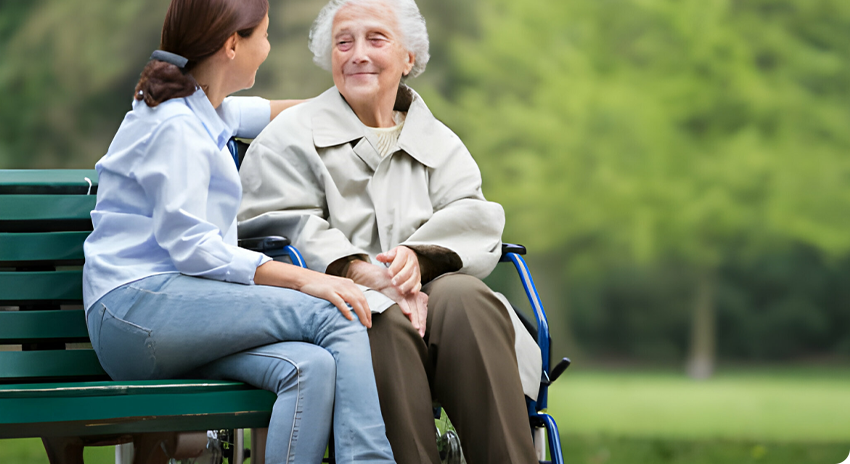
At assisted living communities, seniors receive help with daily activities such as bathing, dressing, and eating. They may also benefit from coordination of services with outside healthcare providers, and monitoring of resident activities to ensure their health, safety, and well-being. Caregivers who work at assisted living communities can also provide medication administration and personal care services for older adults.
Other services offered within assisted living communities can include some or all of the following:
- Housekeeping
- Laundry
- Recreational Activities
- Social Outings
- Emergency Medical Response
- Medication Monitoring
- Family Visitation
- Personal Care
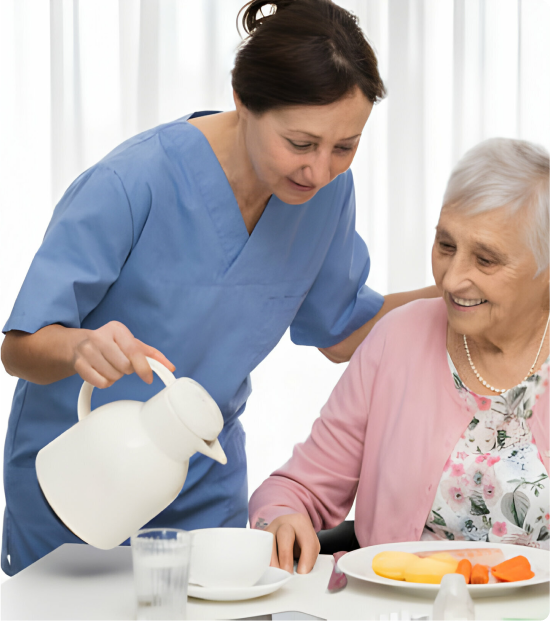
At Always Best Care, our representatives can match your senior's emotional, physical, and financial needs with viable assisted living communities nearby. Results are based on comparative data, so you can select the best choice for you or your loved one.
Always Best Care works closely with local senior living communities to gain valuable knowledge that we then use to help seniors and their loved ones make informed decisions. This information can include basic care and rent, resident availability, and services provided. Because Always Best Care is compensated by these communities, we provide senior living referral services at no extra cost to you.
Some of the most popular assisted living communities to consider in our area include the following:
- Immanuel Gardens Retirement Living and Aged Care
- Windsor Aged Care Services
- Regis Chelmer
- Stafford Gardens Village Brisbane
- Garden City Aged Care Services
- Aspley Gardens

For many seniors, moving into a senior living community revolves around how and when they want to make a transition to more involved care. Some seniors are more proactive about transitioning to independent living. Others choose to remain home until their care needs or other requirements are satisfied. Remember - our staff is here to help. Contact our office today to learn more about assisted living communities and how we can find a facility that exceeds your expectations.

Taking the First Step with Always Best Care
The first step in getting quality in-home care starts with a personal consultation with an experienced ABC Care Coordinator. This initial consultation is crucial for our team to learn more about you or your elderly loved one to discover the level of care required. Topics of this consultation typically include:
A discussion of your needs and how our trained caregivers can offer assistance in the most effective way

A draft of your Care Plan, which includes highly detailed notes and a framework for the care that you or your senior will receive

Discuss payment options and help coordinate billing with your insurance provider

Our caregivers are trained to spot changes that clients exhibit, like mental and physical decline. As your trusted senior care company, we will constantly assess and update your Care Plan to meet any new emotional, intellectual, physical, and emotional needs.
If you have never considered in-home care before, we understand that you and your family may have concerns about your Care Plan and its Care Coordinator. To help give you peace of mind, know that every team member and caregiver must undergo comprehensive training before being assigned to a Care Plan.
At the end of the day, we only hire the best of the best at Always Best Care. Whether you need home care in Queensland, AB 24-hours a day or only need a respite for a couple of hours, we are here to serve you.
When you're ready, we encourage you to contact your local Always Best Care representative to set up a Care Consultation. Our Care Coordinators would be happy to meet with you in person to get to know you better, discuss your needs, and help put together a personalized Care Plan specific to your needs.
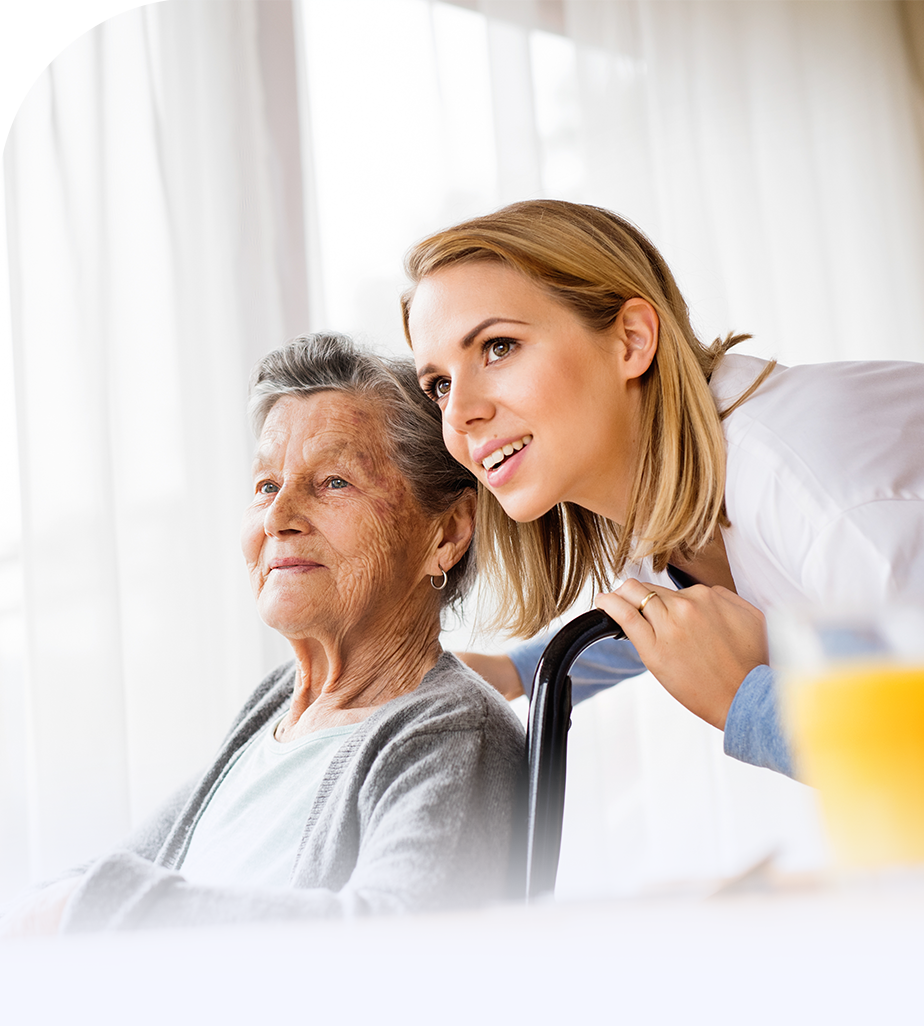
Latest News in Queensland, AB
'I want it bad': James O'Connor's pitch to Joe Schmidt as Crusaders pile on misery for Waratahs
Lachlan Harperhttps://wwos.nine.com.au/rugby/super-pacific-2025-james-oconnor-wallabies-joe-schmidt-crusaders-waratahs-result-video-tim-horan-comments/d88c8a63-1e1d-49c8-a8c4-9ec5ad52499c
Wallabies great Tim Horan believes James O'Connor has done enough to earn selection for Joe Schmidt's squad for the upcoming Lions tour after the ...
Wallabies great Tim Horan believes James O'Connor has done enough to earn selection for Joe Schmidt's squad for the upcoming Lions tour after the Crusaders defeated the Waratahs at Allianz Stadium.
O'Connor came into the match in the 50th minute and his biggest impact was late in the match when Tom Christie scored.
Off a halfway scrum, O'Connor was third receiver, following the ball to keep the Waratahs defence guessing.
Watch all the action from the 2025 British and Irish Lions tour of Australia on Stan Sport, the only place to watch every match live and on demand
He took a pass one-handed, ran around Triston Reilly and then released Sevu Reece on the wing. The Crusaders winger grubbered inside with Christie finishing it off.
"It's an exclamation mark on a well deserved victory ... this is special," Morgan Turinui said on Stan Sport.
READ MORE: Lomax sends message to Blues selectors for Origin return
READ MORE: Gus slams standards of Origin surface
READ MORE: Beveridge shuts down 'surprising' claims about Rioli saga
For Horan, it was that work from O'Connor which makes him a near certainty for Schmidt.
"I reckon that moment there from James O'Connor, that might've made Joe Schmidt go, OK I reckon I've seen enough from him now," he said.
"That was brilliant the way he got back into play."
Post-match, O'Connor told Stan Sport's Matt Burke admitted he's eager to wear the Wallabies jersey.
"I want it bad, for a good two years I didn't think it was going to be a reality but I'm just putting my head down and working. It's got me to this point so far and if I get that opportunity with Joe I'll take it with all hands hopefully," he said.
The 48-33 win for the Crusaders leaves the Waratahs with only the slightest mathematical chance of making the top six.
In their final home game of the season, the Waratahs were blown off the park, trailing 19-0 after 20 minutes.
Langi Gleeson then gave home fans something to cheer about with his first of the night.
By half time though, the Crusaders were leading 31-7. Johnny McNicholl, Braydon Ennor, Chay Fihaki and Ioane Moananu were the tryscorers.
Gleeson had a double when the Waratahs struck first after the break. Then it was game on when Miles Amatosero scored in the 53rd minute. However, the Crusaders' lead extended moments later as Sevu Reece scored a long distance effort.
A special Darby Lancaster put down in the 72nd minute ensured the Waratahs were still in the game at 38-28.
However, O'Connor featured with a penalty goal moments later before contributing to the Christie finish.
Waratahs winger Triston Reilly then scored the final effort, finishing off a pinpoint Joey Walton kick to the corner. The Crusaders finished 48-33 winners.
Australia's unemployment rate stays at 4.1% — ABS
Dexter Tilohttps://www.hcamag.com/au/specialisation/payroll/australias-unemployment-rate-stays-at-41-abs/535884
More women found work in April, rising by 65,000 (0.9%), much higher than the 24,000 men who found work (0.3%), according to the ABS.The growth in employment fuelled the rise in the employment-to-population ratio to 64.4% in April, just below the record high of 64.5% in January.On the other hand, the addition of unemployed people meant the labour force expanded by...
More women found work in April, rising by 65,000 (0.9%), much higher than the 24,000 men who found work (0.3%), according to the ABS.
The growth in employment fuelled the rise in the employment-to-population ratio to 64.4% in April, just below the record high of 64.5% in January.
On the other hand, the addition of unemployed people meant the labour force expanded by 95,000 individuals, with the participation rate going up to 67.1%.
"The participation rate for 35- to 44-year-olds had the largest annual growth, up 1.9 percentage points to 88.3%," said Sean Crick, ABS head of labour statistics, in a statement.
Treasurer Jim Chalmers said the data is "very encouraging" and shows the country's economic progress.
"More than 1.1 million jobs have now been created under the Albanese Government, a higher rate of employment growth than any major advanced economy," Chalmers said in a statement. "Today's jobs figures follow data yesterday showing annual real wages have grown for 18 consecutive months."
Minister for Employment and Workplace Relations Amanda Rishworth also welcomed the jobs growth data.
"Delivering more jobs and higher wages is one of the best ways we can support Australians with cost-of-living pressures," Rishworth said.
Unemployment by state, territory
The highest unemployment rate of 4.2% was recorded in three states, including Victoria, Queensland, and Western Victoria, according to the ABS. The other locations logged:
Tasmania's unemployment rate is an all-time low for the state, according to its local government, which cited its 2030 Strong Plan for Tasmania’s Future.
"We are a diverse economy that is powered by more than 42,000 small businesses. They are employing, they are confident, and the conditions are right for them to succeed – the data is backing this in," said Tasmanian Premier Jeremy Rockliff in a statement.
"We are slashing red tape, working hand in glove with our business community and it's showing positive signs with this latest record low unemployment rate."
Chalmers said Australia's labour market is helping the country weather global uncertainty.
"Amid all the uncertainty and volatility in the global economy, our labour market remains an encouraging source of strength," he said.
"Low unemployment and much lower inflation is a remarkable combination and means we are well placed and well prepared for the challenges coming at us from abroad."
Drua stun Reds with 80th minute match winner, sparking wild scenes in Suva
WWOS Stuffhttps://wwos.nine.com.au/rugby/super-pacific-2025-fijian-drua-beat-queensland-reds-highlights-match-report-video/83f7c304-d550-4e9f-a6ba-c293f72c6ff7
Fijian Drua substitute Isikeli Rabitu scored a try with 52 seconds to spare to stun the Queensland Reds 36-33 in their first match since Les Kiss was confirmed as the next Wallabies coach.The Reds were one minute away from registering an elusive first win in Suva but they were unable to hold on with 14 men after flanker Fraser McReight was shown a y...
Fijian Drua substitute Isikeli Rabitu scored a try with 52 seconds to spare to stun the Queensland Reds 36-33 in their first match since Les Kiss was confirmed as the next Wallabies coach.
The Reds were one minute away from registering an elusive first win in Suva but they were unable to hold on with 14 men after flanker Fraser McReight was shown a yellow card in the dying stages.
Seru Uru looked to have won the game for the Reds when he forced a turnover on his own try line, only to spill the ball almost immediately after stealing possession.
Watch all the action from the 2025 Super Rugby Pacific season on Stan Sport, the only place to watch every match live and on demand
Rabitu pounced on the loose ball and flung himself towards the try-line.
The last-minute try came after the Drua regathered possession following a hopeful kick from winger Taniela Rakuro from inside his own half.
Fullback Isaiah Armstrong-Ravula nailed the conversion to claim a dramatic three-point victory, just their third win of the season, sparking wild scenes at a packed HFC Stadium in Suva.
READ MORE: 'Past it' Beale makes ex-All Black eat humble pie
READ MORE: US record shattered as Bol debuts in big-money league
READ MORE: Huge upset as star hammered in doping ban comeback
It was the Drua's second straight home win against Australian opposition after beating the Waratahs in Lautoka on April 19.
"Obviously a bit disappointed at the end, but I thought the boys did really well to get ourselves back into the game," Reds captain Tate McDermott said on Stan Sport.
"The Drua played a physical game and we missed too many tackles. Obviously disappointed, but we got the bonus point. We're not happy with that, but it's better than nothing.
NEW PODCAST! Inside Line break down the appointment of Les Kiss as Wallabies coach following a handover from Joe Schmidt
"We let them score too easily, too many times. Against a team like the Drua, if you give them that much time and space to do whatever they want with the ball and they're going to make you pay.
"We'll take our lessons. It's not all doom and gloom.
"We've got an important game next week against the Waratahs and then against the Brumbies, but we'll take it one week at a time."
The big picture
The last-gasp victory has kept the Drua's faint Super Rugby Pacific playoff hopes alive.
They remain at the bottom of the table but have cut the gap to sixth to just seven points.
The Reds are fourth on 28 points. Their losing bonus point ensures they cannot be overtaken this weekend.
What's next
The Drua host the Blues at HFC Stadium in Suva next Friday in a must-win match for the Fijian side, while the Reds travel to Sydney to play the Waratahs at Allianz Stadium on the same night.
Disclaimer:


 403-800-7255
403-800-7255
